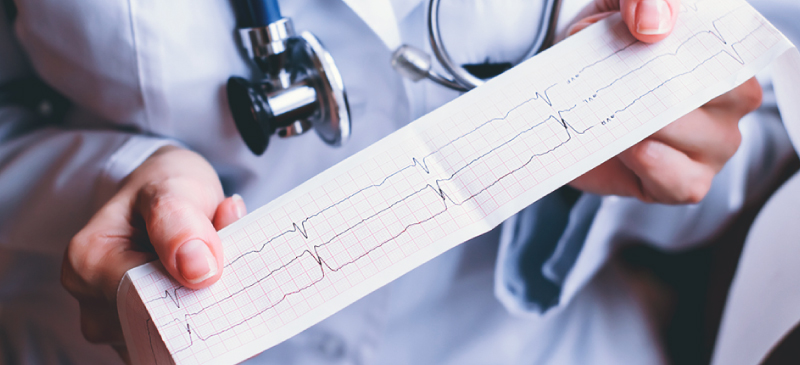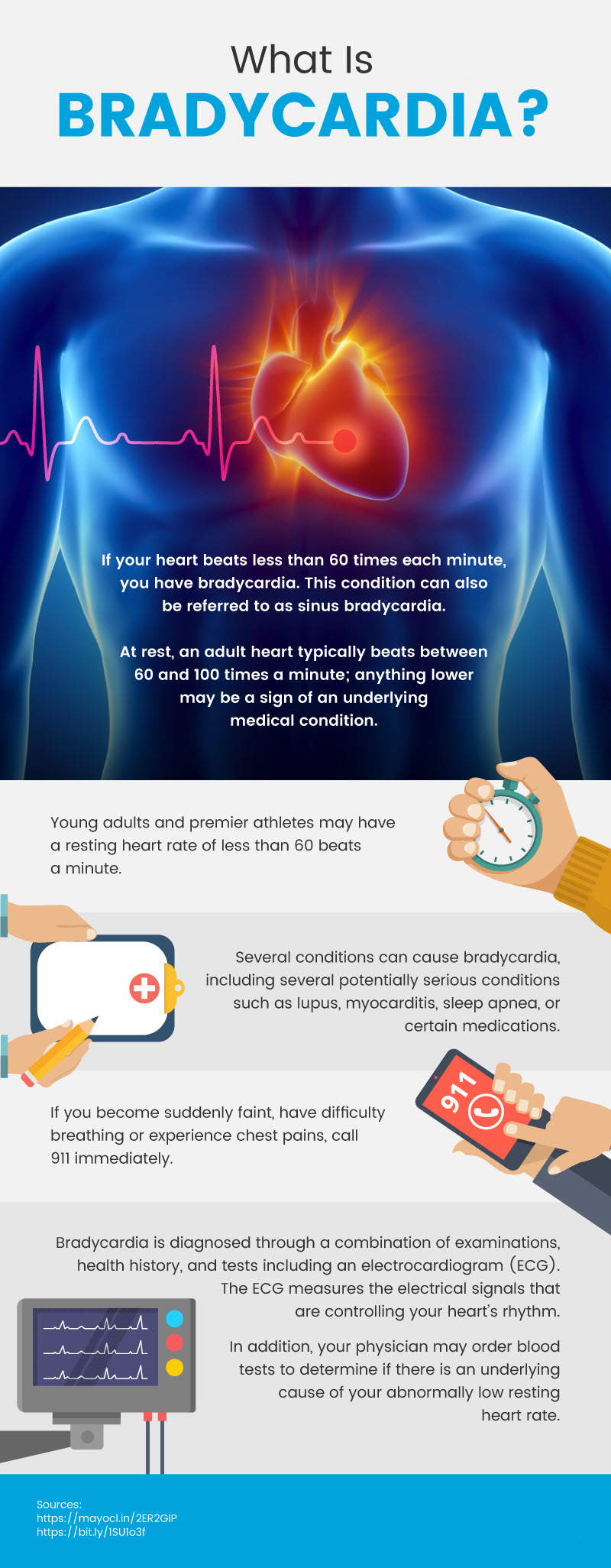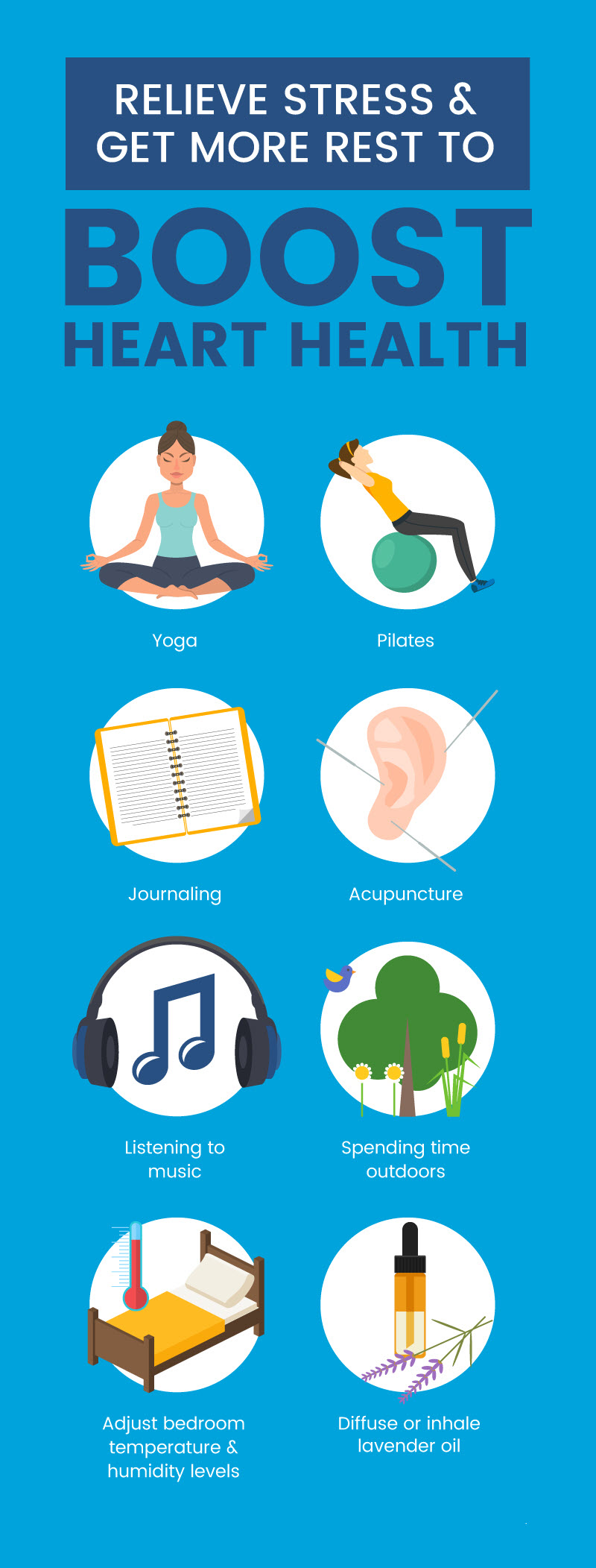If your heart beats less than 60 times each minute, you have bradycardia.
This condition can also be referred to as sinus bradycardia.
At rest, an adult heart typically beats between 60 and 100 times a minute; anything lower may be a sign of an underlying medical condition.
It can be a severe condition if your heart isn’t pumping enough blood throughout the body.
There are, of course, exceptions.
Young adults and premier athletes may have a resting heart rate of fewer than 60 beats a minute, and this is generally not considered a health concern.
Bradycardia symptoms can range from mild to severe, particularly when your brain, liver, kidneys, and other organs aren’t getting enough oxygen.
Several conditions can cause bradycardia, including several potentially dangerous situations, such as myocarditis, sleep apnea, lupus, or certain medications.
Bradycardia treatment depends on the underlying cause of the low resting heart rate but may also include the surgical placement of a pacemaker.
If you become suddenly faint, have difficulty breathing or experience chest pains, call 911 immediately.
What Is Bradycardia?
The official bradycardia definition, according to Harvard Medical School, is “an abnormally slow heart rate of fewer than 60 beats per minute.”
Each time the heart beats, oxygen-rich blood is pumped through the body.
When you have a meager resting heart rate, your organs may not receive enough oxygen to operate correctly.
However, a low heartbeat of 50 beats per minute may be reasonable for some elite athletes and some incredibly active people.
For these people, their bodies have adapted to a low heart rate, and their body is efficiently pumping blood.
Nevertheless, even people who are physically fit should have any signs of bradycardia evaluated by a physician.
Sinus bradycardia occurs when this condition starts in the sinus node, the natural pacemaker of the heart.
Bradycardia may start here if electrical impulses that trigger the heart rate are not occurring as they should.
This includes a slower than normal impulse, a failed impulse, an irregular impulse, or an impulse that’s blocked.
Some individuals may experience sinus node problems that cause alternating bradycardia and tachycardia.
While bradycardia and tachycardia sound similar, they are opposites.
Tachycardia is a condition where the resting heart rate is faster than usual.
There are several types of tachycardia, including atrial fibrillation, SVT, and others, and if you are experiencing an abnormally slow or an unusually fast heart rate, call 911.
Bradycardia Signs & Symptoms
When your organs aren’t receiving enough oxygen, the following symptoms are possible: (1, 2)
- Near fainting
- Fainting spells
- Dizziness
- Lightheadedness
- Unusual fatigue
- Shortness of breath
- Chest pains
- Confusion
- Memory problems
- Lack of energy
- Symptoms associated with the underlying cause
Causes & Risk Factors
Certain underlying health conditions can cause bradycardia. These include: (1, 2)
- Cardiac arrhythmia
- Atrial fibrillation
- Atrioventricular block (first, second or third-degree)
- Damage of the heart tissue due to aging
- A congenital heart defect
- Myocarditis
- Endocarditis
- A complication of heart surgery
- Sleep apnea
- Rheumatic fever
- Lupus
- Lyme disease
- Typhoid fever
- Very high blood potassium level
- Hypothyroidism
- Hypothermia
- Toxic levels of certain narcotics
- A side effect of medications, including:
- Propranolol
- Atenolol
- Metoprolol
- Sotalol
- Verapamil
- Diltiazem
Risk Factors
Recognized risk factors of bradycardia include: (4)
- Heart damage
- Coronary artery disease
- High blood pressure
- Diabetes
- Renal insufficiency
- Smoking
- Recreational drug use
- Heavy alcohol use
- Psychological stress
- Anxiety
Diagnosis
Bradycardia is diagnosed through a combination of physical examinations, health history, and tests, including an electrocardiogram (ECG).
The ECG measures the electrical signals that are controlling your heart’s rhythm.
One of the challenges in diagnosing bradycardia is that your low resting heart rate may not occur under the emotional stress of a physical examination.
If your doctor suspects you may have bradycardia, you may be provided a portable electrocardiogram, also known as a cardiac event monitor, that will collect heart rhythm data over a couple of days.
Besides, your physician may order blood tests to determine if there is an underlying cause of your abnormally low resting heart rate.
Be prepared to provide your doctor with a list of prescription medications, over-the-counter medications, and any herbal or vitamin supplements that you are taking, in addition to the dosage for each.
It is essential as many drugs and supplements can cause changes in heart rate, including bradycardia.
Conventional Treatment
Sinus bradycardia treatment depends on the underlying cause and symptoms. Some of the possible bradycardia treatments that may be prescribed include:
Sinus node dysfunction: Surgery to implant a pacemaker that will monitor your heart rate and generate electrical impulses to maintain an average heart rate.
Hypothyroidism: Prescription medications of either synthetic thyroid hormones or natural thyroid hormones to help bring hormones to proper levels.
Congenital heart defect: Surgery to repair the defect or prescription medications to manage the symptoms.
Myocarditis: An inflammation of the heart muscle, myocarditis may be caused by viruses that require corticosteroids or other medications.
In other cases, it may improve on its own. However, rest may be necessary for a minimum of three to six months.
Endocarditis: This infection of the endocardium will likely require high doses of IV-delivered antibiotics administered while you are admitted to the hospital.
Sleep apnea: Treatment for your bradycardia depends on the severity of your sleep apnea.
Lifestyle changes, including losing weight, quitting smoking, and not sleeping on your back may be recommended before a more aggressive treatment like a CPAP (continuous positive airway pressure) machine.
In rare cases, surgery to remove tissue or to stimulate your upper airway and other surgical interventions in the jaw or neck may be necessary.
Rheumatic fever: This inflammatory disease is often treated with a combination of antibiotics, anti-inflammatories, and anticonvulsant medications.
This disease most often occurs due to inadequately treated strep throat or scarlet fever and affects children from 5 to 15 years of age.
Lupus: Conventional treatments for lupus often include over-the-counter NSAIDs, antimalarial drugs, corticosteroids, immunosuppressants, and biologics.
Lupus is a complicated and systemic autoimmune disease that can cause significant complications in your organs, including your heart.
Lyme disease: Often difficult to diagnose, Lyme disease is treated by oral or intravenous antibiotics.
Typhoid fever: Considered extremely rare in the United States, typhoid fever is spread through contaminated food and water or close personal interaction with an infected individual.
This disease is treated with antibiotics like ciprofloxacin or ceftriaxone.
Change in medications: If your sinus bradycardia symptoms are caused by one or more of the drugs or supplements you are taking, your doctor will find a suitable replacement.
9 Natural Treatments for Bradycardia
Recommended the root cause determines natural-focused bradycardia treatment.
However, if you have a heart condition of any kind, the first step is to modify your diet.
Treating other underlying causes of bradycardia naturally can help to relieve the symptoms and may help bring your heart back into a standard rate range.
1. Eat a heart-healthy diet.
If cholesterol or high blood pressure is a concern, changes to your diet can fight cardiovascular disease and improve heart function, according to the American Heart Association.
Eat a variety of nutritious foods, including whole grains like farro, organic fruits and vegetables, lean proteins, and wild-caught fish.
Foods rich in omega-3s are proven to lower bad cholesterol while raising proper cholesterol levels, and evidence shows that it can also lower blood pressure.
As you can see, omega-3s must be an essential part of your diet for heart health.
The American Heart Association recommends an additional 0.5 gram to 1 gram of omega-3 fats daily, either from fresh fish or other sources.
In addition to wild-caught tuna, mackerel, and salmon, you can add omega-3s to your diet by adding: (16)
2. CoQ10.
Take 200 to 400 milligrams of a high-quality CoQ10 supplement daily.
There are two forms of CoQ10 — ubiquinone, and ubiquinol, and the latter is the active antioxidant form, which may produce better results.
According to the Cleveland Heart Lab, CoQ10 supplementation may reduce the risk for repeat heart attacks,
lower blood pressure, and may significantly lower levels of specific inflammatory biomarkers shown to increase the risk for cardiovascular disease.
To boost CoQ10 levels, you can also add certain foods to your diet that are naturally rich with this essential fat-soluble substance. These include:
3. L-Carnitine.
Take 2,000 milligrams of L-carnitine daily. In a research study conducted by the Julia Parrish Diabetes Research Institute at the University of South Florida College of Medicine,
L-carnitine supplementation has been shown to increase heart fatty acid metabolism enough to correct bradycardia in diabetic rats.
You can also get L-carnitine from certain foods, including:
- Grass-fed beef
- Whole milk
- Wild-caught cod
However, if you are pregnant, breastfeeding, have kidney failure, seizures, or hypothyroidism, L-carnitine is not recommended.
4. Magnesium.
Take 300 milligrams to 400 milligrams of magnesium daily to help combat anxiety, improve sleep efficiency, lower insomnia symptoms, relieve muscle aches, and spasms.
Additionally, a magnesium deficiency is linked to atherosclerosis, diabetes, hypertension, arrhythmias, and heart failure, according to a report published in the journal Nutrients.
5. Acupuncture.
For many of the conditions that can cause bradycardia, acupuncture may be helpful.
This includes lupus, Lyme disease, hypothyroidism, and stress.
Acupuncture is also indicated for cardiovascular health.
In a clinical study published in the journal Arthritis Research & Therapy, acupuncture reduces the risk of coronary heart disease in people with fibromyalgia. And, it is shown to reduce stress.
6. Reduce stress.
Today’s over-scheduling, 24/7 news rotation, mobile devices, everyday stressors, and health problems cause stress.
It seems that it has just become a regular part of life.
According to the American Psychological Association, anxiety is one of the most destructive emotional conditions that we can have as it can cause chronic headaches,
certain diseases, including hypothyroidism, and it is associated with an increased risk of heart disease.
Finding the stress relievers that work for you is essential.
It may take some trial and error to find the right blend of natural therapies that work best for you
and don’t limit your testing to just one or two of the techniques — for most people, two or more technologies may help relieve stress safely.
Yoga and Pilates are both great for inducing a sense of calm and wellbeing.
Writing in a journal, expressing your feelings, fears, and gratitude may help you to cope with the stress of a chronic illness.
Listening to music can help alter your mindset — choose music that makes you happy.
7. Relieve Anxiety.
Along with bradycardia symptoms, anxiety is common, and finding natural remedies for anxiety can help improve your quality of life and give you peace of mind.
Several of the resources mentioned above, including acupuncture, diet, and yoga, all can help to relieve anxiety.
Additionally, several natural treatments may help improve anxiety symptoms.
Take 500 milligrams of ashwagandha twice daily.
In a clinical study of individuals with persistent severe anxiety, participants who received the ashwagandha,
deep breathing relaxation techniques, dietary counseling, and a multivitamin had decreases in their anxiety scores of 56.5 percent.
Take a vitamin B complex daily to help relieve depressive and anxiety symptoms.
In a small clinical study conducted by researchers at the Department of Psychiatry & Behavioral Sciences at the Miller School of Medicine in Miami,
Sixty participants were given a vitamin B complex supplement.
At 30 days and 60 days, they showed significant improvement and continuous improvement in both anxiety and depression symptoms.
Diffuse or inhale lavender essential oil to reduce anxiety and encourage relaxation.
In a review of clinical and research studies published in the journal Evidence-Based Complementary & Alternative Medicine,
researchers found that lavender has therapeutic effects, including recreation, mood-stabilizing, and it also demonstrates neuroprotective qualities.
Keep a bottle nearby, and when anxiety starts to appear, breathe deeply for a few moments until symptoms abate.
8. Sleep.
When bradycardia symptoms are caused by sleep apnea, adjusting your bedroom’s temperature, and humidity levels may help.
Sleeping with your head elevated and using a snore guard may also help. Plus,
a clinical study published in the journal Clinical Geriatric Medicine indicates that six to 10 sessions of cognitive-behavioral therapy may improve sleep quality and insomnia symptoms.
9. Exercise daily.
To improve heart health, exercising daily is a must. Many of the causes of sinus bradycardia symptoms can be helped with regular exercise.
In addition to improving cardiovascular health, exercising is a great way to relieve stress and anxiety, and it can help to facilitate a good night’s sleep.
Exercising outdoors and with friends can improve depression and help you feel more connected to your world
not to mention the added benefit of soaking up some sunshine that will boost your levels of vitamin D.
Bradycardia Key Points
- Sinus bradycardia means your heart beats less than 60 beats per minute at rest.
- When the heart beats abnormally slow, your brain and other organs may not receive enough oxygen-rich blood to operate correctly.
- Several underlying health conditions and habits can increase your risk for bradycardia, including coronary artery disease, high blood pressure, diabetes, smoking, anxiety, and psychological stress.
- Certain medical conditions can cause bradycardia, including several heart conditions, sleep apnea, lupus, Lyme disease, and hypothyroidism.
- Treatment of bradycardia depends on the underlying cause of the low heart rate, and several natural therapies may help with symptoms.
9 Natural Treatments for Bradycardia
1. Eat a heart-healthy diet that includes whole grains, organic fruits, and vegetables, lean proteins, and foods rich in omega-3s.
2. Take 200 milligrams to 400 milligrams of ubiquinol CoQ10 daily to help lower blood pressure and lower your risk for cardiovascular disease.
3. Take 2,000 milligrams of L-carnitine daily to help correct bradycardia symptoms.
4. Take 300 milligrams to 400 milligrams of magnesium each day to combat anxiety, improve sleep quality, and to improve heart health.
5. Consult with an acupuncturist and have treatments to treat the underlying causes of your bradycardia, as well as to treat anxiety.
6. Reduce stress with natural remedies like yoga, journaling, and music therapy.
7. Relieve tension by taking 500 milligrams of ashwagandha twice daily, a vitamin B complex supplement daily and diffuse or inhale lavender essential oil whenever you feel anxious.
8. Improve sleep quality with humidity and temperature changes in your bedroom as well as with cognitive-behavioral therapy.
9. Exercise daily to improve heart health, relieve stress and anxiety, and enhance the quality of sleep.










